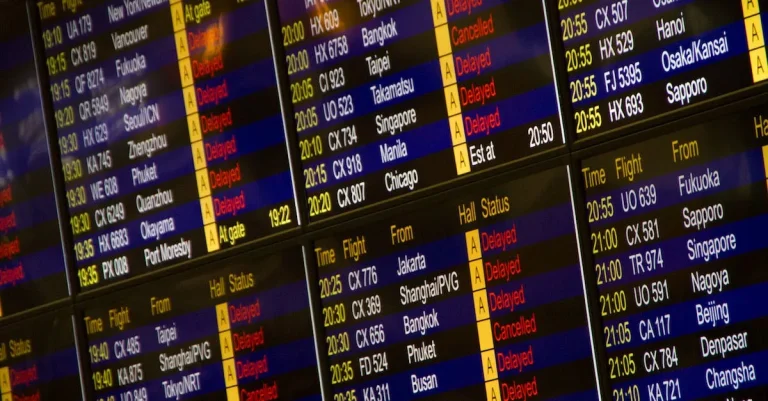Getting a traffic ticket can be stressful and confusing. You may be wondering what documentation and evidence you need to bring with you to your court date to best support your case.
This comprehensive guide will walk you through everything you should bring to traffic court to fight or mitigate your traffic ticket.
If you’re short on time, here’s a quick answer: bring your ticket or citation, driver’s license, insurance card, any evidence or records to support your case like photos, videos, receipts, inspection records, and any witnesses who were with you or have relevant testimony.
Bring Your Ticket or Citation
When preparing to go to court for a traffic ticket, it is crucial to have your ticket or citation with you. This document proves the violation and will be referenced during your court appearance.
Here are a few important steps to consider:
Have the ticket details on hand
Before heading to court, take a moment to review your ticket and familiarize yourself with its details. This includes the date, time, and location of the incident, as well as the specific violation you are being charged with.
Having these details on hand will help you provide accurate information when discussing your case with the judge or prosecutor.
Verify any required paperwork is complete
In some cases, you may be required to complete certain paperwork before your court appearance. This could include submitting proof of insurance, vehicle registration, or any other documents related to the violation.
Make sure to double-check the requirements outlined on your ticket or citation and ensure that you have all the necessary paperwork prepared and organized.
Additionally, it is a good idea to bring any supporting evidence or documentation that may help your case.
This could include photographs, witness statements, or any other relevant information that can support your version of events.
Remember, the more prepared you are, the better your chances of presenting a strong defense.
Bring Your Driver’s License
When heading to court for a traffic ticket, the most important thing to bring is your driver’s license. This is the primary form of identification that proves you are legally allowed to drive.
Without it, you may face additional consequences or even be denied entry to the courtroom.
Make sure your driver’s license is valid and not expired. If it is expired, you should renew it before your court date.
Additionally, if you have multiple licenses, such as an international driver’s license, bring those as well to demonstrate any relevant driving privileges.
Why is your driver’s license important?
Your driver’s license serves as proof that you have completed the necessary requirements to operate a motor vehicle.
It contains essential information such as your name, address, and driver’s license number, which may be required by the court for record-keeping purposes.
It also allows the court to verify your identity and ensure that you are the individual named on the ticket.
Furthermore, having a valid driver’s license shows the court that you take your driving responsibilities seriously.
It demonstrates that you have undergone the necessary training and testing to become a licensed driver, which can work in your favor when discussing the circumstances surrounding the traffic violation.
What if you don’t have your driver’s license?
If you don’t have your driver’s license with you on the day of your court appearance, it’s important to contact the court ahead of time to discuss the situation.
They may provide guidance on what to do or require you to present alternative forms of identification.
Remember, driving without a valid license is a serious offense and can result in additional penalties. It’s always best to have your driver’s license on hand when attending court for a traffic ticket.
Bring Proof of Insurance
When you are heading to court for a traffic ticket, one important thing you should definitely bring with you is proof of insurance. This is crucial because it shows that you have met the legal requirement of having insurance coverage for your vehicle.
Not having proof of insurance can result in additional fines or penalties, so it’s always better to be prepared.
Your insurance card
The most common form of proof of insurance is your insurance card. This small card contains important information such as your policy number, the effective dates of your coverage, and the contact information for your insurance company.
It serves as a quick reference for law enforcement officers and court officials to verify that you are indeed insured.
Insurance policy documents
In addition to your insurance card, it’s also a good idea to bring along your insurance policy documents. These documents provide more detailed information about your coverage, such as the types of coverage you have (liability, collision, comprehensive, etc.) and the limits of each coverage.
Having these documents with you can be helpful if there are any questions or disputes regarding your insurance coverage.
Remember, it’s not enough to simply say that you have insurance – you need to provide tangible proof.
Without this proof, you may find yourself facing additional consequences, such as higher insurance rates or even the suspension of your driver’s license.
So, make sure to have your insurance card and policy documents ready when you go to court for a traffic ticket.
Bring Any Evidence to Support Your Case
When going to court for a traffic ticket, it’s important to gather any evidence that can help support your case. This evidence can be crucial in helping you prove your innocence or mitigate the charges against you.
Here are some types of evidence you should consider bringing with you:
Photos of the Scene
If you were involved in an accident or if there were specific conditions at the time of the alleged violation, bringing photos of the scene can be extremely helpful.
These photos can provide visual evidence that supports your version of events and can help demonstrate any extenuating circumstances that may have contributed to the violation.
Video Evidence
If you were lucky enough to have a dashcam or any other type of video recording device running at the time of the incident, make sure to bring the footage with you to court.
Video evidence can be very persuasive and can help provide an accurate account of what transpired.
It can capture important details that may have been missed or misunderstood by the officer issuing the ticket.
Receipts or Records
If you received a ticket for a violation related to parking or registration, it’s essential to bring any relevant receipts or records that prove compliance.
For example, if you were ticketed for parking in a restricted area, providing evidence that you had paid for parking or had a valid permit can help strengthen your case.
Vehicle Maintenance and Inspection Records
If you were issued a ticket for a mechanical issue with your vehicle, such as a broken tail light or faulty brakes, bringing maintenance and inspection records can be beneficial.
These records can demonstrate that you have taken proper care of your vehicle and that the violation was an isolated incident.
Communication Records
If you have been ticketed for a violation that involved communication, such as using a mobile phone while driving, it can be helpful to bring relevant communication records.
This can include phone records that show you were not using your phone at the time of the alleged violation or any other evidence that contradicts the officer’s claims.
Eyewitness Testimony
If there were any witnesses to the incident, try to gather their contact information and request their presence in court.
Eyewitness testimony can provide an unbiased account of what happened and can help corroborate your version of events.
Their testimony can carry significant weight in influencing the judge’s decision.
Remember, when it comes to presenting evidence in court, it’s crucial to be organized and prepared. Make sure to bring copies of all the evidence you have gathered and be ready to present it in a clear and concise manner.
By presenting strong evidence, you increase your chances of a favorable outcome in your traffic ticket case.

List of Witnesses Attending Court with You
When you have to go to court for a traffic ticket, it can be beneficial to have witnesses who can support your case.
Here is a comprehensive guide to the different types of witnesses you may want to consider bringing with you:
Passengers
If you had any passengers in your vehicle at the time of the incident, they can serve as valuable witnesses. They can provide firsthand accounts of the events leading up to the traffic ticket and any relevant details.
Passengers can provide testimony about your driving behavior, the actions of other drivers involved, or any other circumstances that may have contributed to the situation.
Their presence can help strengthen your case and provide a different perspective.
Eyewitnesses
Eyewitnesses are individuals who may have observed the incident but were not directly involved. These individuals can be pedestrians, other drivers, or even residents in the area.
Eyewitness testimony can be powerful in court and can provide an unbiased account of what happened.
They can provide details about the traffic violation, the actions of other drivers, or any other relevant information that can support your defense. Having an eyewitness can significantly bolster your case and increase your chances of a favorable outcome.
When bringing witnesses to court, it’s important to remember a few things:
- Make sure your witnesses are willing and available to attend court on the specified date and time.
- Prepare your witnesses beforehand by discussing the details of the incident and what you would like them to testify about.
- Provide your witnesses with any necessary documentation, such as a copy of the traffic ticket or any evidence you plan to present in court.
- Inform your witnesses about the courtroom procedures and what to expect during the trial.
- Ensure that your witnesses arrive early to court to avoid any delays or complications.
Remember, having witnesses can significantly impact the outcome of your case. Their testimonies can provide additional credibility and support to your defense.
However, it’s essential to consult with a legal professional to determine the best course of action and ensure that you are following the proper legal procedures.
References for the Judicial Officer
Driver’s license record
When appearing in court for a traffic ticket, it is essential to bring your driver’s license record. This document provides the judicial officer with important information about your driving history, including any previous traffic violations, accidents, or license suspensions.
It helps the officer evaluate the severity of your current offense and determine an appropriate course of action.
To obtain your driver’s license record, you can contact your local Department of Motor Vehicles (DMV) or visit their website.
Make sure to request the record well in advance, as it may take some time to process.
Past driving history
Another important reference to bring to court is your past driving history. This includes any tickets, citations, or convictions you have had in the past.
Providing this information shows the judicial officer that you are aware of your previous driving offenses and can help in building a case for leniency or reduced penalties.
It is recommended to gather all relevant documents, such as traffic tickets, court records, or correspondence from your insurance company, to support your claim.
Remember to organize these documents in a clear and easily accessible manner to present them effectively in court.
Criminal background check
In some cases, the judicial officer may conduct a criminal background check to assess your overall driving behavior and potential risks.
This check can reveal any previous criminal convictions or outstanding warrants that may impact the judgment.
It is crucial to be honest and forthcoming about your criminal history if asked by the judicial officer. Trying to hide or withhold information can have severe consequences and negatively affect your case.
It is better to address any previous offenses openly and discuss any rehabilitative measures you have taken since then.
Payment in Case of Fines
When it comes to paying fines for a traffic ticket, there are several options available. It’s important to note that the accepted methods of payment may vary depending on the jurisdiction. Here are three common ways to pay fines:
Cash
One of the most straightforward methods of payment is using cash. Many courts accept cash payments for traffic ticket fines.
It’s important to bring the exact amount as most courts may not provide change. Additionally, it’s a good idea to keep the receipt as proof of payment.
Money Order
Another option to consider is using a money order. A money order is a type of payment that can be purchased from various locations such as post offices, banks, or convenience stores.
It acts as a prepaid check and can be made out to the court or the specific department responsible for handling traffic ticket fines.
Certified Check
Alternatively, a certified check can be used to pay traffic ticket fines. A certified check is a type of payment that guarantees the availability of funds. To obtain a certified check, you’ll need to visit your bank and request one.
Be sure to make the check payable to the appropriate court or department.
It’s important to remember that each court system may have specific requirements for acceptable forms of payment.
It’s always a good idea to check the court’s website or contact them directly to confirm the accepted methods of payment for traffic ticket fines.
Conclusion
Going to traffic court can be intimidating if you’re unsure what to bring. By bringing your ticket, license, insurance, evidence, witnesses, and payment, you’ll be prepared to present your best case. Organize everything prior to your court date and arrive early.
With the proper documentation and evidence, you can hopefully mitigate the fines and penalties for your traffic violation.






